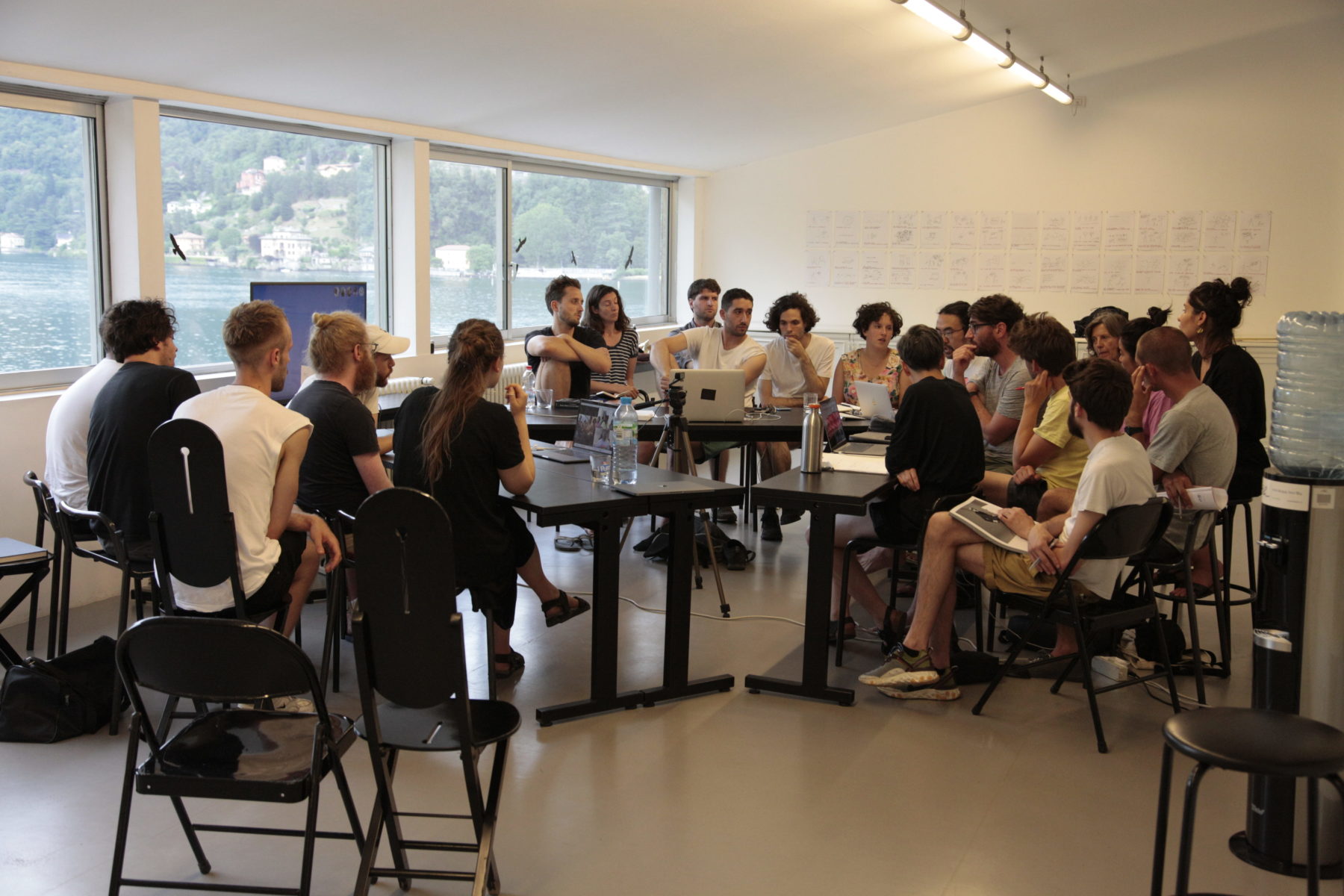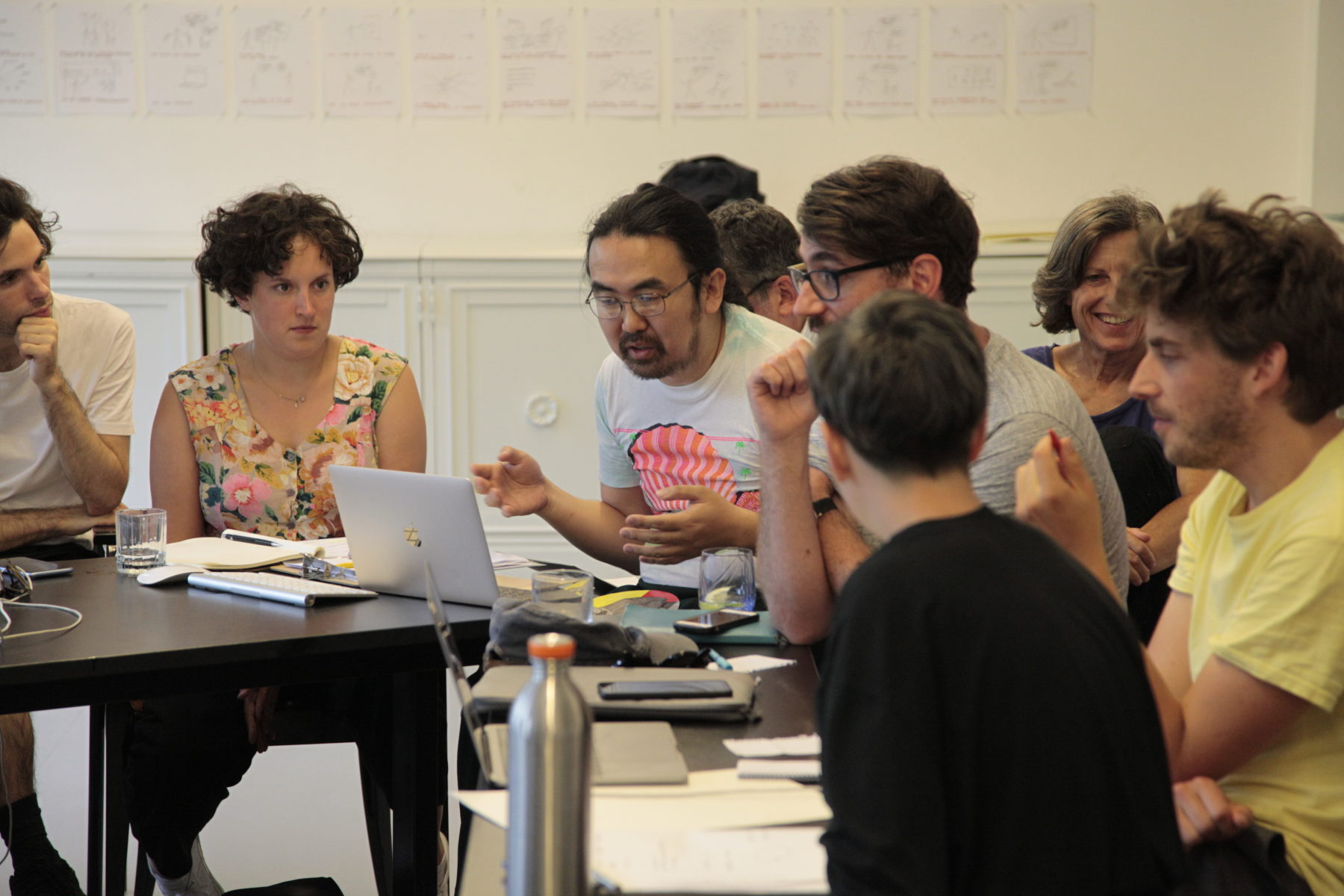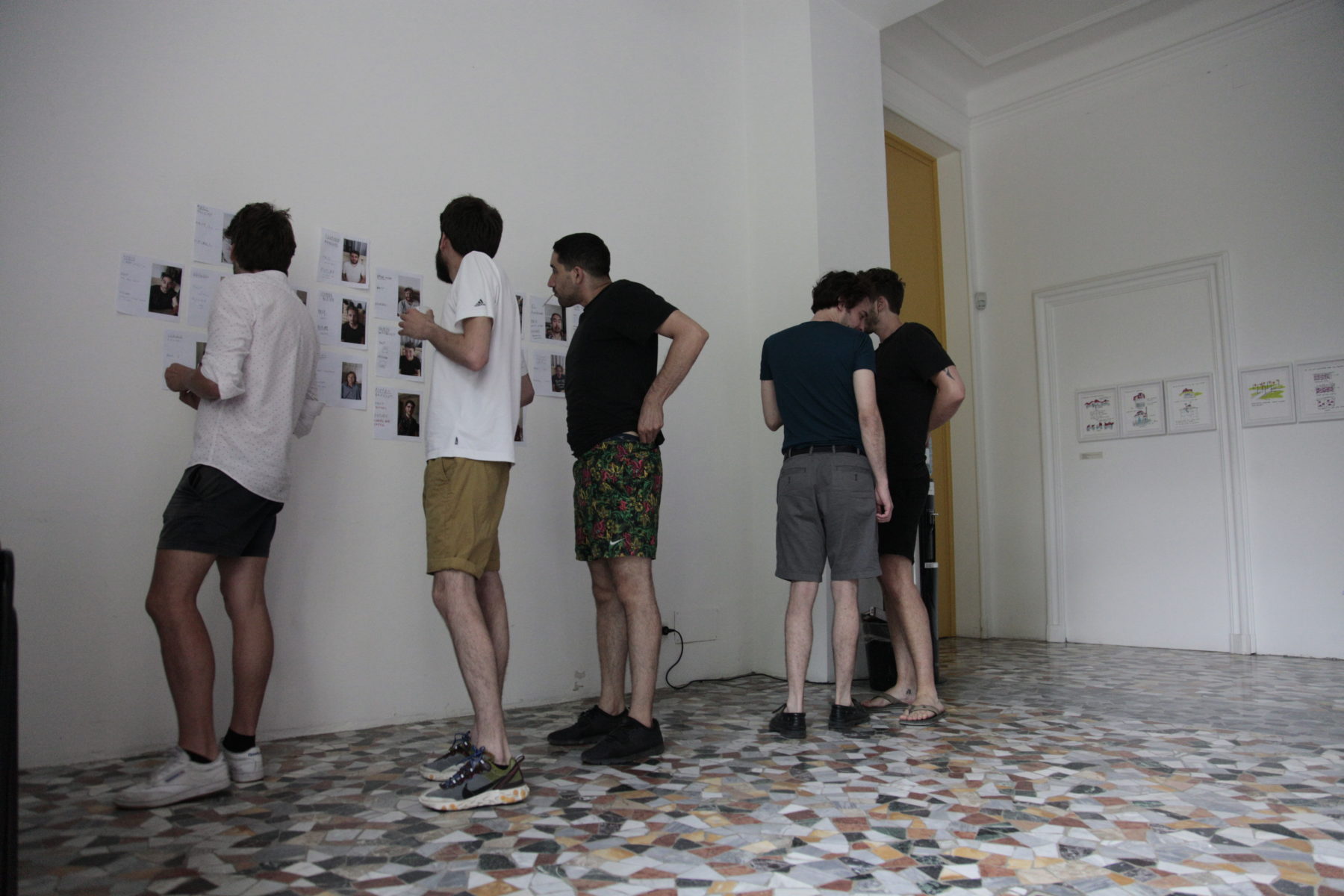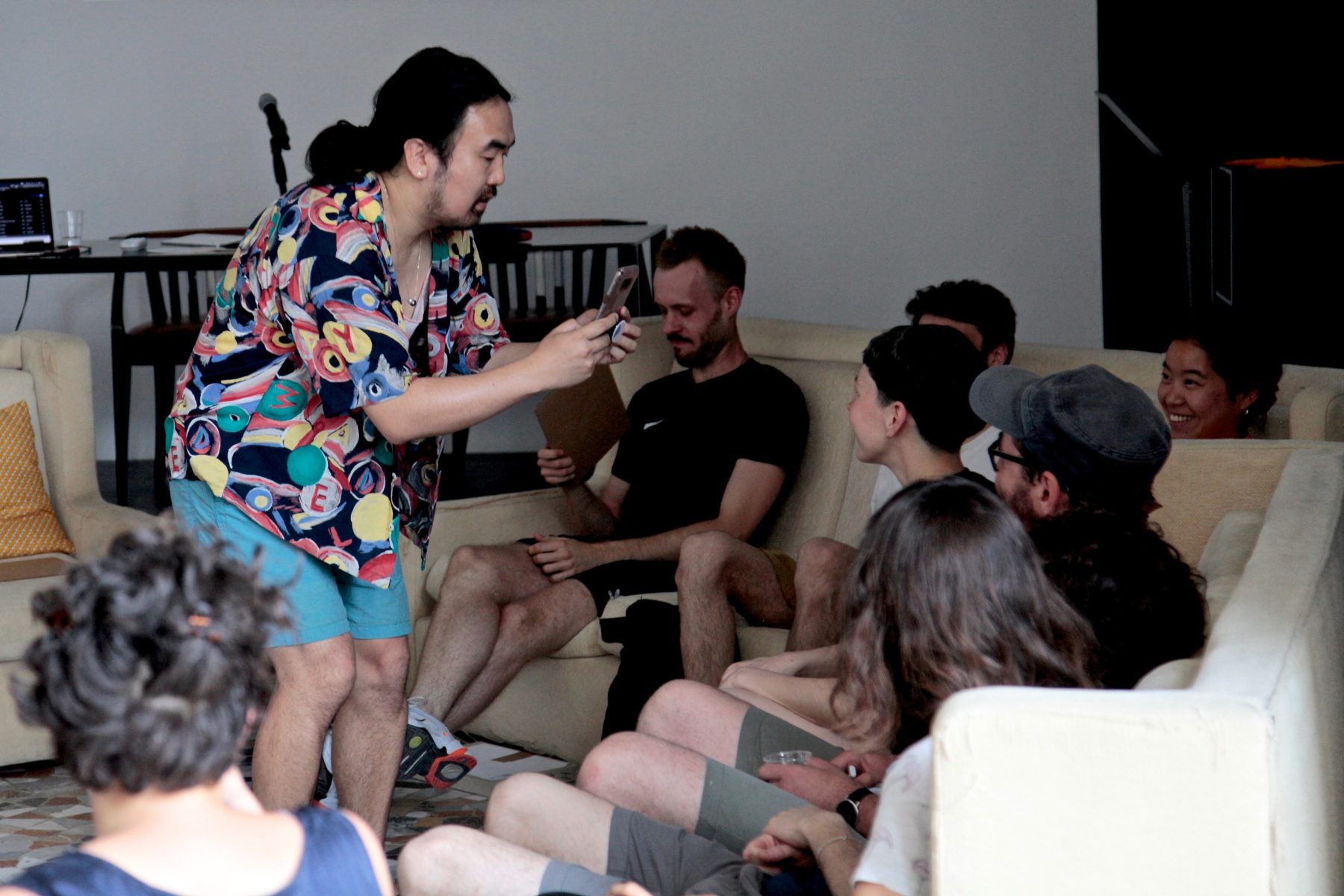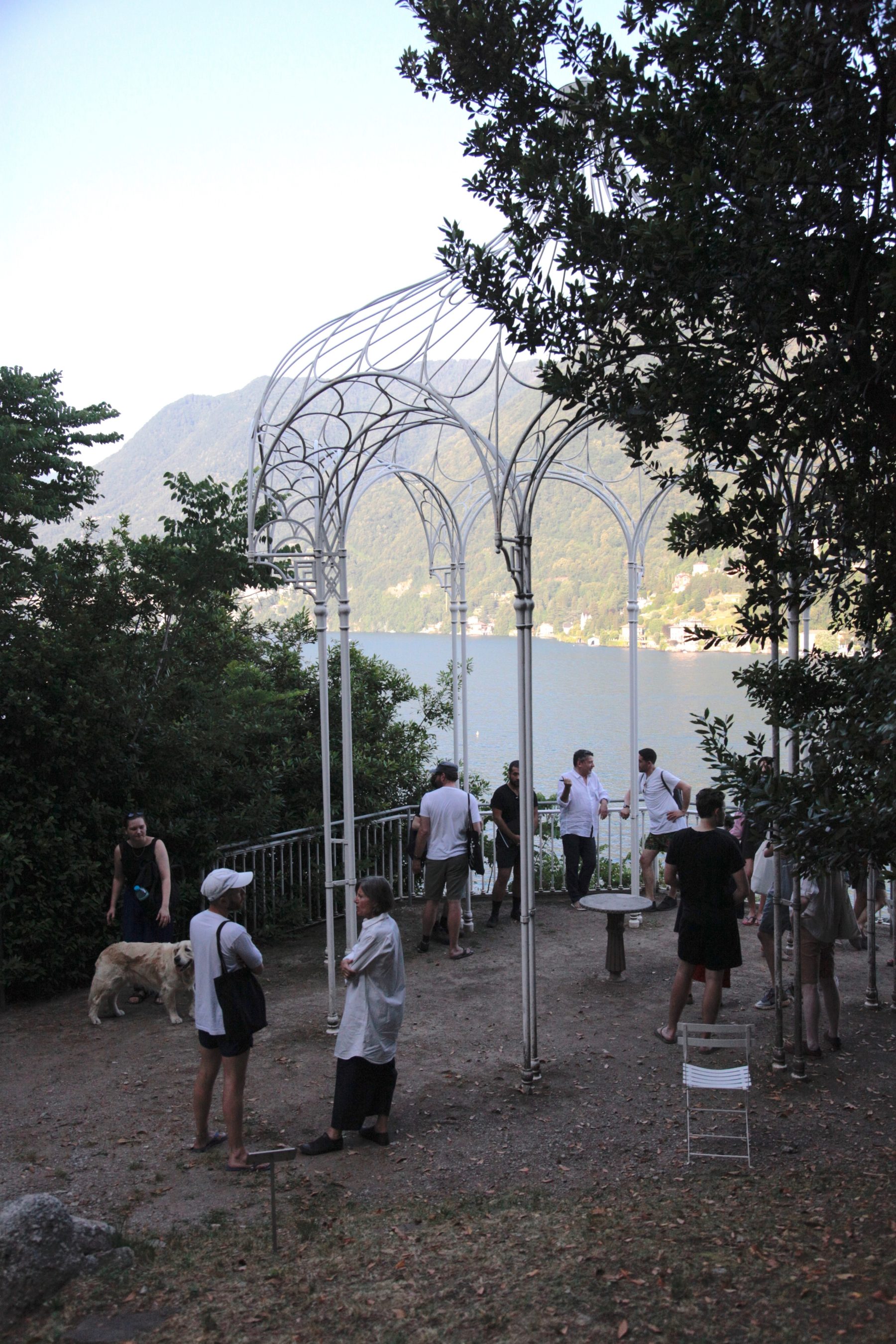Ei Arakawa, Nora Schultz, Kasper König
Causal Loops / Squiggles
Artists' Research Laboratory (XXV CSAV)
29 June–27 July 2019
The overlap of the artists and curators' presence on site will structurally inform this workshop in which the central event of performance/presentation/production/exhibition will be concentrated in the middle of the time to question and shift the common form of time frames in production (the idea of an accumulative process with the result and presentation in the end) and focus more on the reflection of the work around the moment of its actual presentation (or: the moment when it is put out in the world). We will work with the overlap in a way that could be compared to the sound phenomena of a Doppler Frequency Effect, or to the temporal structure of a Causal Loop.
We will learn:
- How to hear the Doppler Frequencies of both directions at the same time?
- How to make a billiard ball collide with its future self?
But then:
- What are the ways future and past complicate each other?
- How to work with the afterlife of the event already before it happens (and later)?
- Can there be a possible new beginning after the event? (Can the 2 time frames around the event even interchange?)
- Should the movement of the billiard ball or the sound of the Dopplers be archived? If yes, how could they?
- Does fictional identity have a time? How is it connected to its times?
In this looped or squiggled world, publication and production are kind of the same vocabularies. Thus, a draft of the publication will be completed before the end of the workshop, and used for your future past art.
(Ei Arakawa and Nora Schultz)
Guest curator
Kasper König
Director
Annie Ratti
Associate Directors
Lorenzo Benedetti
Gregorio Magnani
Coordinator
Anna Castelli
